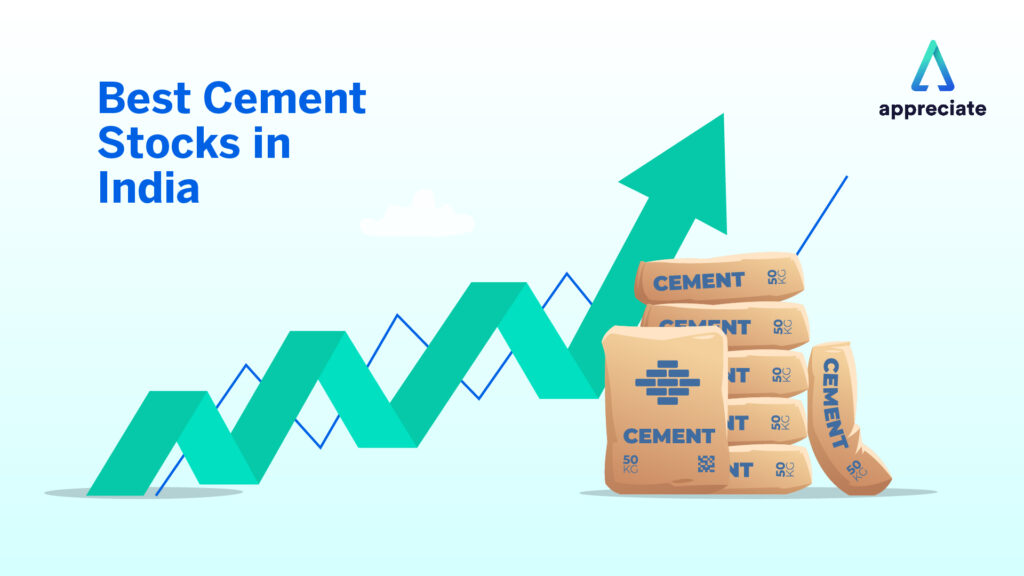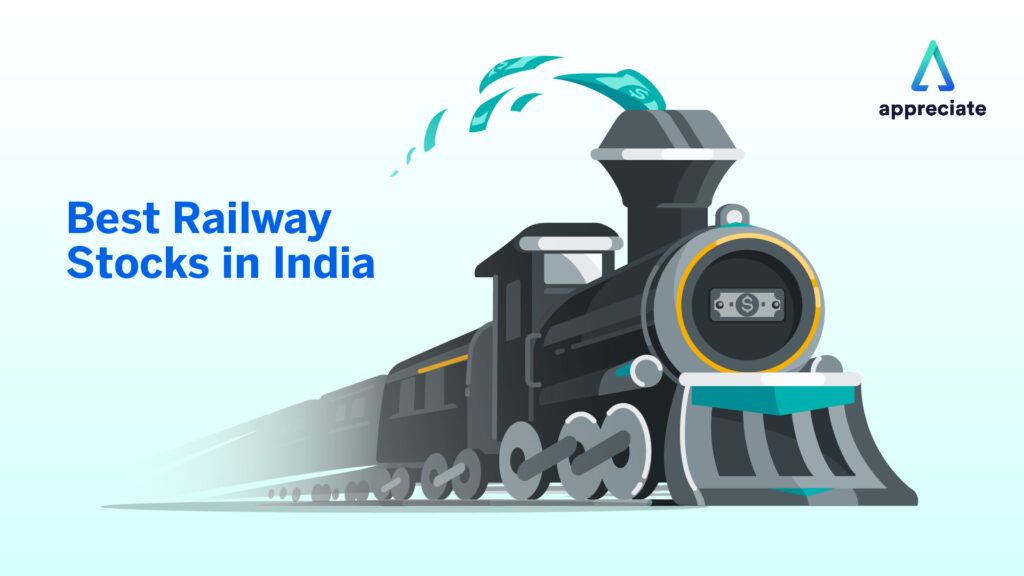Quick Summary
Here are a few of the best cement stocks in India to look out for, come 2026:
UltraTech Cement – The largest cement maker in India with presence across practically all of India.
Shree Cement – A low-cost producer with a strong presence in North India.
Ambuja Cements – A subsidiary of the Adani Group, a major player benefiting from recent green growth.
ACC Ltd – An established and trusted legacy brand, is a brand name you may trust, while also increasing capacity.
Dalmia Bharat – A fast-growing player in the less mature East and South India markets, whose growth is outpacing more established markets.
JK Cement – Noted for its growing presence in both white cement and grey cement.
Ramco Cements – A cost-efficient player that is the largest cement maker in Southern India.
Birla Corporation – The Birla name is a solid legacy brand in the short- and long-term, and it is expanding rapidly via acquisitions.
India Cements – A regional player with improving fundamentals.
Heidelberg Cement India – A multinational corporation-backed player, which in August 2023 achieved significant potential, given the company’s consistent growth profile and stable pricing.
Why It Matters: There is a clear growing need for cement due to India’s infrastructure and housing boom. With so much being invested to achieve a sonorous future, ranging from the government to the private sector, top cement companies and more are hoping for these favorable historic returns and capitalizing after 2026.
Want a quick visual overview? Check out our Web Story on the best Cement Stocks in India for bite-sized insights and highlights before you dive into the full analysis below.
Top Cement Stocks in India
| Stock Name (₹) | Market Cap (₹) | P/E Ratio | EPS (₹) | 52 Week High (₹) | 52 Week Low (₹) |
|---|---|---|---|---|---|
| Ultratech Cement | 3,790,258,402,200 | 53 | 242 | 13,110 | 10,048 |
| Shree Cement | 933,769,551,200 | 52 | 497 | 32,490 | 25,360 |
| Ambuja Cement | 1,289,550,610,973 | 35 | 15 | 625 | 455 |
| ACC Cement | 308,327,808,264 | 12 | 141 | 2,120 | 1,593 |
| Dalmia Bharat Cement | 399,515,367,000 | 34 | 63 | 2,496 | 1,601 |
| JK Cement | 439,810,879,000 | 43 | 132 | 7,566 | 4,219 |
| Ramco Cement | 268,073,614,350 | 47 | 24 | 1,215 | 788 |
Why Invest in Cement Stocks?
Investing in cement stocks offers significant growth opportunities due to several factors:
- Government Initiatives: The Indian government’s focus on infrastructure development has led to major programs like the PM Gati Shakti Master Plan, which aims to improve multimodal connectivity, and the Housing for All scheme.
- Sustainability and Growth: Many of India’s top cement companies are expanding capacity and investing in greenfield and brownfield projects, signalling strong growth potential. With the industry projected to grow at a 4-5% CAGR over the next few years, companies investing in capacity expansion will likely reap significant benefits.
- The Real Estate Boom: The real estate sector saw record-high investments in 2023, with US$ 8 billion in private equity/venture capital (PE/VC) funding. This growth is expected to continue, with residential and commercial construction fueling demand for cement.
Moreover, as India continues to urbanise rapidly, the demand for residential, commercial, and industrial construction is on the rise, creating consistent demand for cement.
Top Cement Companies in India
Several cement companies in India stand out for their growth potential, market dominance, and ability to capitalise on India’s growing infrastructure needs. These include:
Ultratech Cement
UltraTech Cement Ltd. is the market leader in the Indian cement industry, with a solid presence in the sector since its incorporation in 2000. As a large-cap company with a market capitalisation of Rs 3,30,773.51 Crore, UltraTech Cement has established itself as a dominant player through its consistent growth and expansion efforts.
Financial Overview
- Total Income: Rs 15,855.46 Crore (down 13.05% from last quarter, Rs 18,235.30 Crore).
- Net Profit: Rs 826.62 Crore (reported in the latest quarter).
- Share Price: Rs 11457.45 (as of 25 Nov, 2024).
- Return on Equity (ROE) over the last five years: 11.63%, 9.32%, 14.56%, 12.36%, and 14.74%.
Shree Cement
Shree Cement Ltd. is known for its operational efficiency and strong market presence in the cement industry. Founded in 1979, it operates as a large-cap company with a market cap of Rs 91,887.92 Crore.
Financial Overview
- Total Income: Rs 4,235.55 Crore (down 19.52% from last quarter, Rs 5,263.09 Crore).
- Net Profit: Rs 76.64 Crore (reported in the latest quarter).
- Share Price: Rs 25467.30 (as of 25 Nov, 2024).
- Return on Equity (ROE) over the last five years: 11.57%, 6.81%, 13.35%, 14.84%, and 11.66%.
Ambuja Cement
Ambuja Cement Ltd., part of the global conglomerate Holcim Group, is a large-cap company with a market capitalisation of Rs 1,24,375.42 Crore. Since its inception in 1981, Ambuja Cement has consistently demonstrated strong performance and sustainability initiatives.
Financial Overview
- Total Income: Rs 7,890.14 Crore (down 8.96% from last quarter, Rs 8,666.20 Crore).
- Net Profit: Rs 470.67 Crore (reported in the latest quarter).
- Share Price: Rs 504.95 (as of 25 Nov, 2024).
- Return on Equity (ROE) over the last five years: 8.62%, 8.14%, 7.44%, 10.96%, and 10.39%.
ACC Cement
ACC Ltd., established in 1936, is a mid-cap company in the cement industry with a market capitalisation of Rs 40,280.37 Crore. It remains a pioneer in the sector, offering a diverse product portfolio.
Financial Overview
- Total Income: Rs 4,772.11 Crore (down 8.70% from last quarter, Rs 5,226.61 Crore).
- Net Profit: Rs 200.04 Crore (reported in the latest quarter).
- Share Price: Rs 2145.00 (as of 25 Nov, 2024).
- Return on Equity (ROE) over the last five years: 14.3%, 6.26%, 13.01%, 11.26%, and 11.93%.
Dalmia Bharat Cement
Dalmia Bharat Ltd., a fast-growing mid-cap player, has strong regional dominance in the cement sector. The company was established in 2013 and boasts a market cap of Rs 34,261.20 Crore.
Financial Overview
- Total Income: Rs 3,160.00 Crore (down 13.92% from last quarter, Rs 3,671.00 Crore).
- Net Profit: Rs 49.00 Crore (reported in the latest quarter).
- Share Price: Rs 1826.80 (as of 25 Nov, 2024).
- Return on Equity (ROE) over the last five years: 11.57%, 6.81%, 13.35%, 14.84%, and 11.66%.
JK Cement
JK Cement Ltd., incorporated in 1975, is a leading player in the Indian cement industry with a strong market presence. The company manufactures a variety of cement products, including grey cement and ready-mix concrete, which are critical to its revenue generation.
- Total Income (Sept 2024): Rs 5,520 Crore (a slight decrease from Rs 5,800 Crore in the previous quarter
- Net Profit (Sept 2024): Rs 487 Crore, a decrease of 3.5% from Rs 505 Crore in the previous quarter
- Share Price (Nov 2024): Rs 3,490.25
- Return on Equity (ROE): 10.2% (last 5 years average)
Ramco Cement
Ramco Cement Ltd., established in 1975, is one of the largest cement manufacturers in South India. Known for its wide product range, Ramco Cement focuses on the production of high-quality cement, including ordinary Portland cement, ready-mix concrete, and dry mortar.
- Total Income (Sept 2024): Rs 3,730 Crore (compared to Rs 3,957 Crore in the previous quarter)
- Net Profit (Sept 2024): Rs 460 Crore, up 2.1% from Rs 451 Crore in the last quarter
- Share Price (Nov 2024): Rs 1,425.40
- Return on Equity (ROE): 14.5% (last 5 years average)
Key Factors to Consider Before Investing in Cement Stocks
Before investing in cement stocks, it’s crucial to assess several vital factors to make informed decisions. Here are the main areas to focus on:
Financial Performance
Look at the company’s profitability (how much profit it makes) by checking key numbers:
- EBITDA: Earnings before interest, taxes, depreciation, and amortisation
- Net profit: The company’s total earnings after expenses)
- Revenue growth: How much the company’s income has increased over time.
A solid financial performance indicates the company is likely to perform well in the stock market.
Market Position and Brand Strength
A company’s brand value and market share (the percentage of the market it controls) can significantly impact its stock performance. Companies with strong brands are more likely to maintain a steady customer base and revenue, which can lead to better stock performance.
Operational Efficiency
Check how efficiently the company operates. Key metrics for this include cost per ton of cement (the cost to produce one ton of cement), energy consumption (how much energy the company uses to make cement), and plant utilisation rates (how well the company’s plants are being used). Efficient operations often translate to better profitability and a healthier stock price.
Expansion and Innovation Plans
Look at the company’s growth plans, such as expanding into new markets or introducing new products. Also, see if the company is investing in sustainable practices (like reducing environmental impact). Companies with strong future plans are more likely to see long-term success, which can positively affect their stock prices.
Top Cement Stocks for Long-Term Investment
If you’re considering long-term investments in the cement sector, here are some top stocks with solid growth potential and strong market positions:
Ultratech Cement
Ultratech Cement, a part of the Aditya Birla Group, is India’s largest cement company. With a wide range of products, Ultratech has maintained a strong position in both the domestic and international markets. It is known for its capacity to scale and its leadership in the industry.
Shree Cement
Shree Cement, known for its efficient cost management and robust growth trajectory, is one of India’s top cement producers. It has a strong presence in North and East India and focuses on expanding its production capacity.
Ambuja Cement
Ambuja Cement, part of the Holcim Group, has consistently performed in India’s cement industry. Known for its sustainable initiatives and strong brand value, it is focused on increasing its market share.
* Disclaimer: This is for educational purposes only. Always do your own research and consult a financial advisor before making any investment decisions.
Risks and Challenges in the Cement Industry
The cement industry faces several risks and challenges that can affect stock performance. Here are the key factors to consider:
High Energy and Logistics Costs
Energy is a significant part of cement production, and rising energy prices (costs for electricity and fuel) can increase production costs. When energy prices go up, companies may struggle to maintain profit margins, which could negatively affect their stock value.
Additionally, logistics costs (costs of transporting raw materials and finished products) also contribute to overall expenses and increases in transportation costs can hurt profitability.
Regulatory and Environmental Challenges
The cement industry must comply with strict environmental regulations (rules that limit pollution and ensure sustainability). These regulations can increase operational costs as companies may need to invest in cleaner technologies or pay fines. Any changes to these rules could impact production and financial performance, leading to potential risks for investors.
Cyclical Nature of the Industry
The cement industry is highly sensitive to economic cycles (periods of economic growth and recession). During times of economic development, demand for construction and infrastructure projects rises, boosting cement demand. However, construction slows down during economic downturns, and cement demand drops.
How to Invest in Cement Stocks in India
Investing in cement stocks in India can be an excellent way to gain exposure to the construction and infrastructure sectors. Here’s a simple guide to get you started:
Direct Equity Investment
One way to invest in cement companies is by buying shares (ownership stakes) of the company directly from the stock market.
- Advantages: Directly owning shares allows you to benefit from the company’s growth and dividends. If the company performs well, you can see an increase in stock value.
- Risks: The stock price can go up and down based on the company’s performance, market trends, and economic conditions. You may also lose money if the company faces challenges like increased costs or reduced demand.
Mutual Funds and ETFs
Some mutual funds or ETFs focus specifically on sectors like construction and infrastructure, including cement. These funds invest in multiple cement companies, helping spread risk.
- Advantages: Mutual funds and ETFs provide exposure to the sector without having to pick individual stocks, which can lower risk.
- Risks: Like any investment, these funds are affected by market conditions. The performance of these funds will depend on how well the cement companies in the fund are performing.
Appreciate Investment
Platforms like Appreciate can make it easier to invest in cement stocks by offering sector-specific investing. Appreciate helps you invest in a range of stocks from specific sectors, including cement, without needing to pick individual companies.
- How it works: Appreciate streamlines the process by allowing you to invest in portfolios that focus on specific industries. This can make sector-based investing simple and less time-consuming.
- Advantages: With Appreciate Trading App, you don’t have to worry about managing multiple stocks. The platform takes care of it for you, making it a good option if you want to focus on specific sectors like cement without doing a lot of research. Appreciate also helps investors to invest in US stocks from India easily and seamlessly.
Also Read: How to invest in us stocks from India
The Future Outlook of the Cement Sector
The cement industry is evolving due to several emerging trends that could shape its future. Here’s what you should watch out for:
Green Cement and Sustainability Initiatives: As environmental concerns grow, cement companies are focusing on producing green cement. This type of cement is made with lower carbon emissions, using alternative materials and energy-efficient methods. With stricter environmental regulations and a global push towards sustainability, cement companies are investing in greener production methods. Companies that lead in sustainability could have a competitive edge in the market.
Increased Demand Due to Infrastructure Growth: The demand for cement is expected to rise as infrastructure projects grow. This includes roads, bridges, housing, and urban development, especially in emerging economies. As more governments invest in infrastructure development, the need for cement will increase. Cement companies positioned in crucial growth areas could see higher sales and profits.
Frequently Asked Questions (FAQs)
Which is the best cement stock to buy in India?
The best cement stock to buy depends on your investment goals and risk tolerance. Some top options to consider include UltraTech Cement, Shree Cement, and Ambuja Cement, as they are well-established and have solid growth potential.
How do I invest in cement stocks?
You can invest in cement stocks through a brokerage account or an online trading platform. Simply choose the stocks you wish to invest in, place an order, and track your investment.
What are the top 5 cement companies in India?
The top five cement companies in India are:
- UltraTech Cement
- Shree Cement
- Ambuja Cement
- ACC Cement
- Ramco Cement
Are cement stocks a good investment for the long term?
Cement stocks can be an excellent long-term investment due to the steady demand from infrastructure and real estate development. However, the profitability of these stocks depends on factors like raw material costs and government policies.
How does the performance of cement stocks correlate with infrastructure development?
Cement companies benefit from increased infrastructure development as demand for cement rises with more construction projects. Strong infrastructure growth typically boosts the financial performance of cement stocks.
What factors affect the profitability of cement companies?
Factors like raw material costs, fuel prices, demand in the construction sector, and government regulations directly impact the profitability of cement companies. Strong management and efficient production processes also play important roles.
Which cement companies in India have the highest market share?
UltraTech Cement, ACC Cement, and Ambuja Cement are among the cement companies with the highest market share in India. These companies dominate the industry with extensive reach and high production capacities.
How can I analyse cement stocks before investing?
To analyse cement stocks, consider financial metrics like revenue growth, profit margins, debt levels, and market share. Additionally, consider factors like infrastructure development trends and raw material cost fluctuations.
What are the risks involved in investing in cement stocks?
Risks include fluctuations in raw material and fuel costs, regulatory changes, and reduced demand in the construction sector. Cement stocks are also sensitive to economic slowdowns and geopolitical factors.
What is the future of the Indian cement industry?
The future of the Indian cement industry looks promising due to strong infrastructure growth, urbanisation, and government initiatives like housing projects. However, companies will need to manage costs and environmental regulations effectively.
How do government policies impact the cement sector?
Government policies, such as infrastructure spending and environmental regulations, significantly impact the cement sector. Favourable policies can boost demand, while stringent regulations on emissions or mining can affect profitability.
Can small investors benefit from investing in cement stocks?
Yes, small investors can benefit from cement stocks by selecting companies with strong growth prospects and stable performance. However, it’s essential to consider the risks and diversify investments to minimise exposure.
Disclaimer: Investments in securities markets are subject to market risks. Read all the related documents carefully before investing. The securities quoted are exemplary and are not recommendatory.























